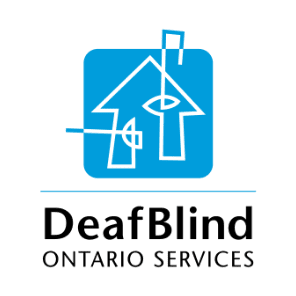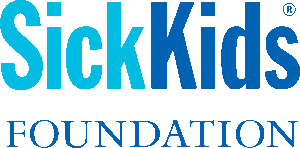DeafBlind Ontario Services
Decent work begins with employee engagement
Organizations looking to build a culture of decent work can take a simple, but important step in developing a successful approach: listen first, then respond.
It’s a practice that has served DeafBlind Ontario Services well, leading to a comprehensive approach that connects to the organization’s strategic vision, and extends through operating plans and day-to-day activities. DeafBlind Ontario Services’ commitment to decent work has seen the organization win a Canadian Nonprofit Employer Of Choice (NEOC) award for three of the last five years.
“We’re always aiming for decent work,” says Alyssa Young, Director of Human Resources. “We’re trying to create programs, values, cultures that are as fair and beneficial to employees as possible.”
The organization was founded in 1989 by families of children with deafblindness looking to develop residential supports to allow for independent living. Originally called Independent Living Residences for the Deafblind in Ontario (ILRDBO), the organization became DeafBlind Ontario Services in 2007, and offers residential and community services across the province.
DeafBlind Ontario Services currently employs about 265 employees, with a mix of full-time, part-time, and part-time relief workers. Support staff, called intervenors, are professionally trained to be the “eyes” and “ears” of people with deafblindness, and support their ability to live independently.
Recognizing an opportunity
Preparing for the NEOC competition in 2015 gave the organization an opportunity to touch base with employees and ultimately helped set in place an ongoing process of engagement, says Karen Madho, Senior Coordinator of Public Relations. The award application process includes a comprehensive employee commitment survey. (DeafBlind Ontario Services won NEOC awards in 2015, 2016, and 2019).
“We got great data from our employees,” Madho says. “We linked that to our strategic plan, looking at how can we tackle improving these scores, respond to employee feedback and engage them in the solutions.”
Decent work at DeafBlind Ontario Services reaches across all aspects of the organization, including:
Fair compensation:
- Full-time employees receive a benefits package that supports good health, with the employer paying the premium. Part-time employees also have access to a benefits package that includes group life insurance and an employee and family assistance program.
- Sick leave and vacation are offered above minimum employment standards.
Stable employment:
- Schedules are planned and posted four weeks in advance to give employees time to plan ahead for family or personal commitments.
- Opportunities for development and advancement:
- Direct service employees receive 95 hours of training when hired, and existing employees receive over ten hours of professional development annually.
- Employees are also encouraged to join task forces related to the organization’s work, and to attend or present at conferences.
Culture and leadership:
- The organization promotes a culture of transparency, and regularly communicates with employees about internal developments, as well as more general news and information related to their work.
Two-way communication as a path to informed decisions
On the issue of communication, Madho says keeping employees informed about news and changes – good and bad – helps foster a sense of inclusion and respect. The organization’s Employee Advisory Resource Support committee (“EARS”) is dedicated to enhancing employee morale and promoting a positive working environment through regular and direct communication with the CEO.
“This organization works really hard across all levels to get information into the hands of employees.”
Regular communication helps plan for organizational change, too, she says. For instance, employee input showed a preference for 12-hour shifts over eight-hour shifts for intervenors. Engagement not only builds trust, but also gives vital information “so that we’re building programs and services that actually work,” Young says.
As for advice or insights to share with the nonprofit sector, Young and Madho suggest organizations start by listening, but always follow through.
“I think it’s important when you’re looking at decent work practices, you’re actually hearing what it is they consider decent, what would they prioritize,” Young says.
Supporting employees through the COVID-19 pandemic
With the outbreak of COVID-19, the organization has stepped up employee engagement to sustain morale and communicate effectively about safety.
“As we continue to face the challenge of keeping our employees and the individuals we support safe, we increased engagement across employee groups through weekly check-in video calls, creating signs confirming, ‘heroes work here,’ and increased communication on safety precautions through video messages, snapcom, memos and graphics to convey important information,” Madho says.
“We also increased our employee recognition efforts to boost morale internally through one-to-one telephone calls with front-line employees and on social media. The feedback we received confirmed that these actions are helping employees feel supported during this challenging time.”



